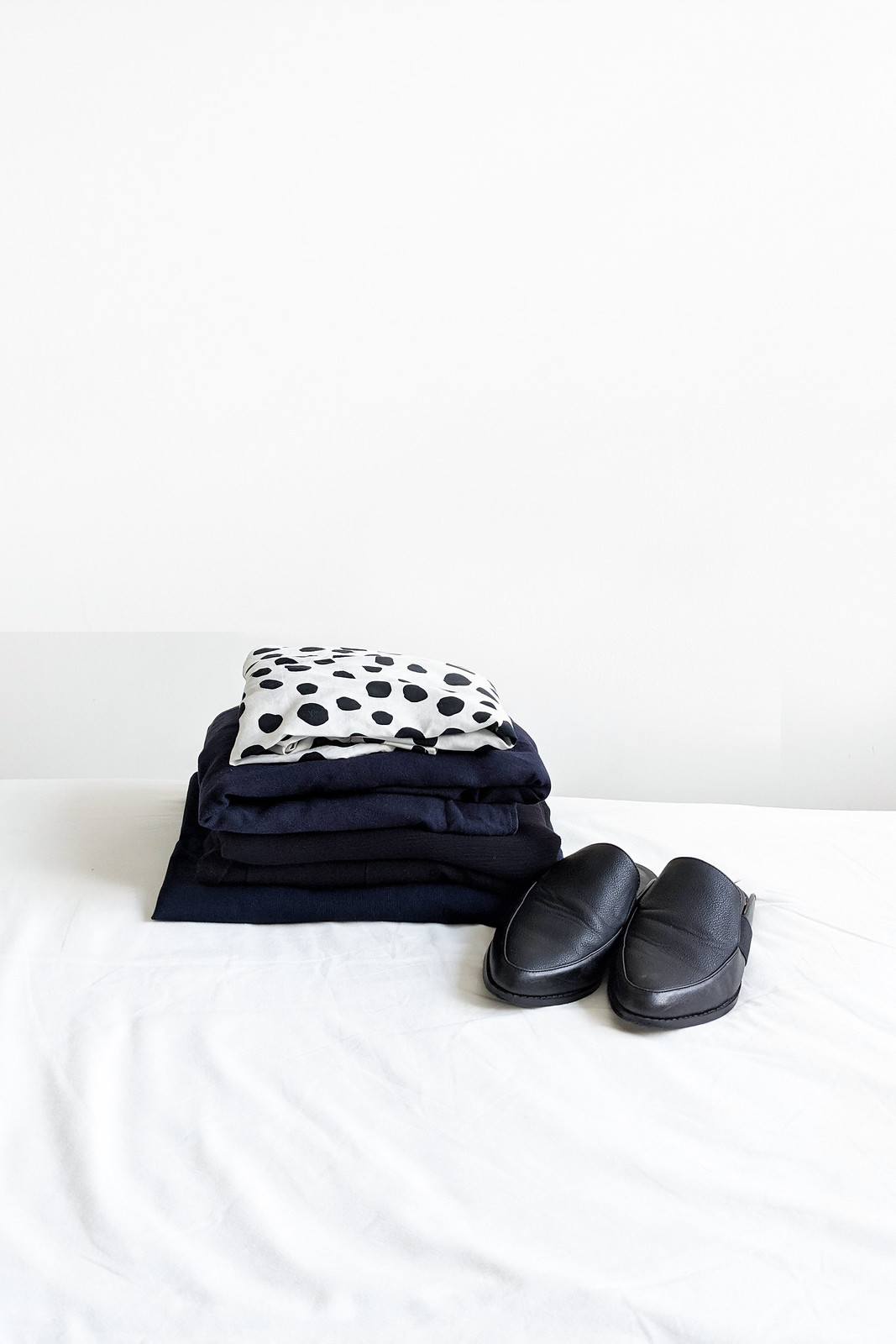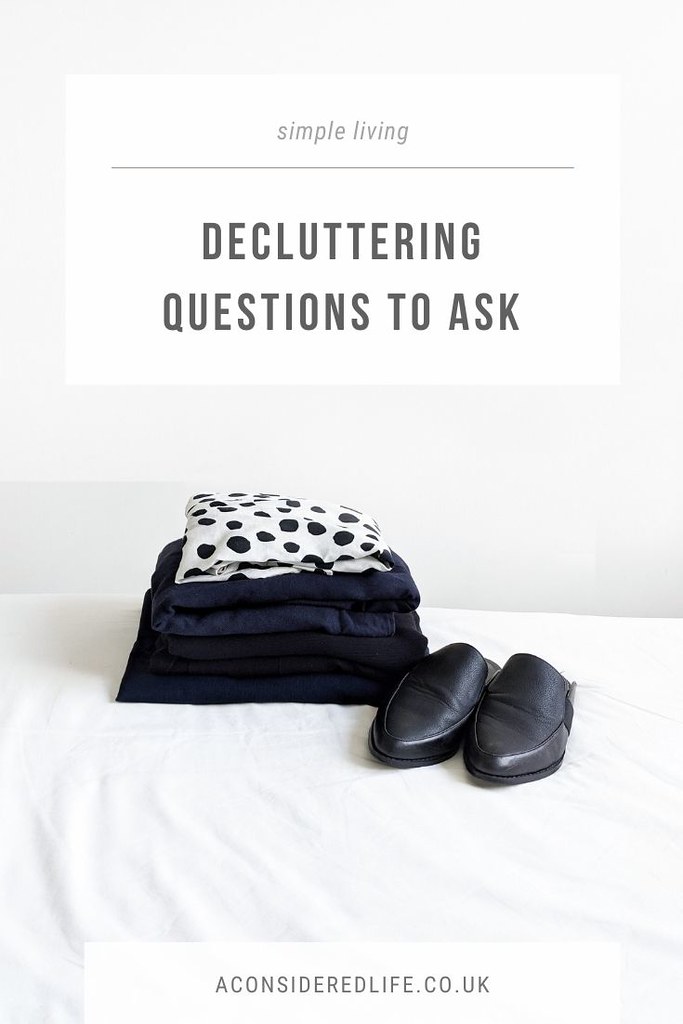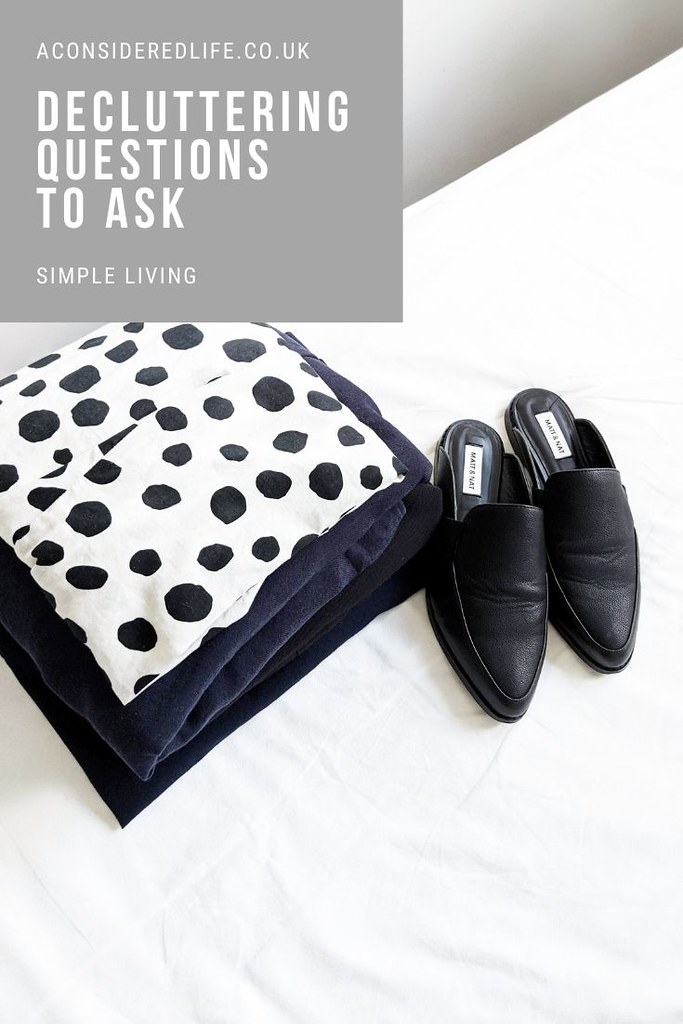
Decluttering can be a struggle for a variety of reasons. Letting go of things that have been a part of our lives for a long time can be difficult, even when we don't use them much or even like them. Sentimental trinkets we bought on vacations; clothes that remind of us of special occasions; gifts from family members who are no longer with us; book we've read; films we've watched; photo albums; academic certificates. All this stuff piles up, unused and unwanted yet overlooked, in hidden nooks and dark cupboards.
Books were the hardest thing for me to let go of. Even years after simplifying my life, I still had a stack of books I was clinging onto when I knew I should let go. They're books I loved and reread countless times but not recently. Someone else would love them as much, if not more, than I did, and that realisation is what helped me to let go. The same could be said for the clothes I was debating whether I'd wear next summer, or the shoes I didn't wear this spring but might the next, along with any unwanted gifts I stored after celebrations. They all went, eventually.
Decluttering is a mental exercise as much as it is physical. It's relatively easy to identify what you don't need or use but it's much harder to actually let go of it. The emotional baggage we carry can be heavy. It's the reason why you still have clothes you never wear in your wardrobe and a stack of books you never read on your shelf. There are all kinds of excuses we give ourselves for keeping a hold of things: we keep them just in case we find an imaginary need for them in the future; we regret the money that will be wasted if we get rid of them; we feel guilt over donating an unwanted gift; we think the memory attached to the object will be lost if we let it go. Breaking down these mental blocks is tricky and sometimes painful.
We don't have to get rid of anything if we really don't want to but we should be honest with ourselves about why we're allowing stuff to take up space in our lives. There's nothing wrong with decluttering slowly and with intention. If you're struggling to let go of what you suspect is clutter in your home, try asking yourself these questions.

Do I use this often? If you use something with any regularity, keep it. If an item isn't super pretty, it might be super useful and if you find yourself using it frequently (even if you don't particularly like the way it looks) then keep it. Decluttering stuff for the sake of it is pointless and just causes unnecessary waste.
Have I used this item in the past year? Will I use it in the year ahead? Some things we don't use regularly yet they're still important to keep. Tools, seasonal clothes, spare bed linen, extra plants; it might be worth keeping specific items because they serve a purpose and you know you'll definitely need them in the future. If you don't know when you'll next need something, it might be worth decluttering it.
Is it necessary for my current lifestyle? Would not having this item impact my daily life? Could I borrow it if I didn't own it? If you haven't used something in over a year and can't see yourself needing it again in the next one, consider whether it's necessary to own it at all. If it wouldn't affect your life to get rid of something you could borrow or rent, it's time to make space by letting it go.
Do I love looking at or using this item? If it was lost or broken, would I buy it again today? This is a really useful question for breaking down the sentimental block that prevents us from letting go. If getting rid of something would inconvenience you or make you upset, it's worth keeping. However, just because we might not repurchase something (because it's not great at what it does or it's ugly to look at) doesn't mean it should be immediately decluttered. If it's serving a purpose right now, keep it.
Do I have more than one of this item? Do I have something else that does the same job? Unless it's something we can use up, having duplicates of the same thing is mostly unnecessary. Multiple pairs of scissors, two mops, spare notebooks, extra tote bags; declutter the duplicates in your life, it'll free up so much space.
If it's broken, can it be fixed? Is it worth being fixed? If you're keeping hold of broken things in the hopes that future you will fix them or figure out a way of disposing of them: tackle this clutter now. Some items aren't worth being fixed and others simply can't be. Dispose of them responsibly either by selling for parts or recycling them. If you haven't replaced these broken things with working ones, it's probably a sign you didn't need them in the first place.
Do I even like it anymore? If I don't like it, does it serve a purpose? Is it useful to have? Not everything we own needs to be useful; being beautiful or a joy to have around is just as important. If you don't like something and it isn't useful, declutter it. It's just taking up space in your life.
Am I holding onto this out of guilt? Unwanted gifts, sentimental items, and expensive things we never used are some of the hardest things to declutter. You might find you're hanging onto these things because of guilt: guilt of spending a lot of money; guilt of being gifted something you didn't like; guilt over throwing away memories. Either display sentimental items or photograph them before letting them go, remember your memories aren't tied to physical objects. Passing on unwanted gifts doesn't make you ungrateful, and if you've spent money on something you've never used, well that money has already been wasted. Sell or donate your expensive unused purchases and move on.
Could this item help or benefit someone else other than me? If you're not using something, consider how someone else could benefit from you passing them on. Sometimes things come into our lives and it's hard to let them go for whatever reason. Maybe we've been gifted it or perhaps we've spent a lot of money on it; either way we haven't used it. Considering how selling or donating it to someone who would love and use these items makes it easier to declutter them.

